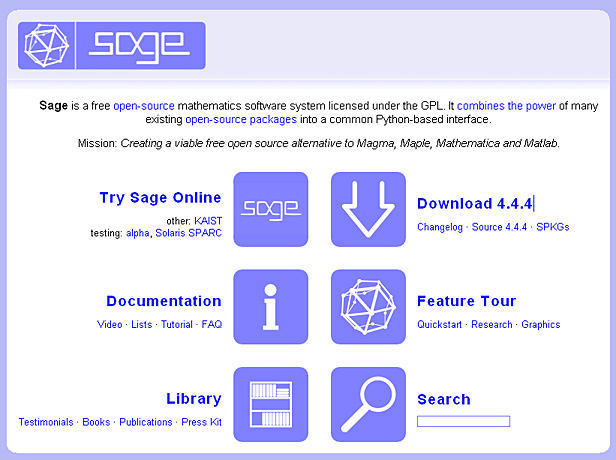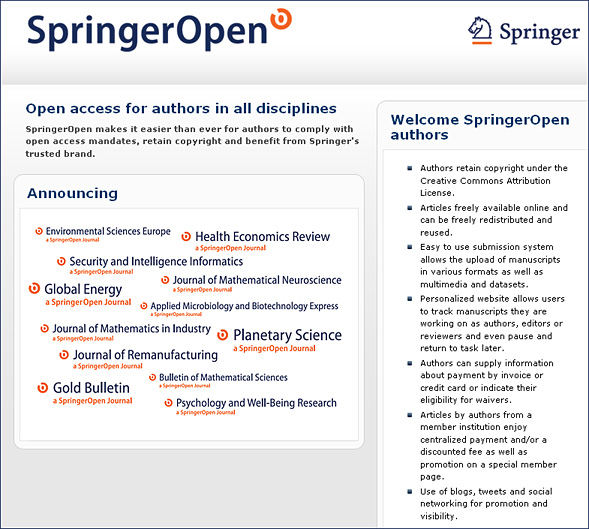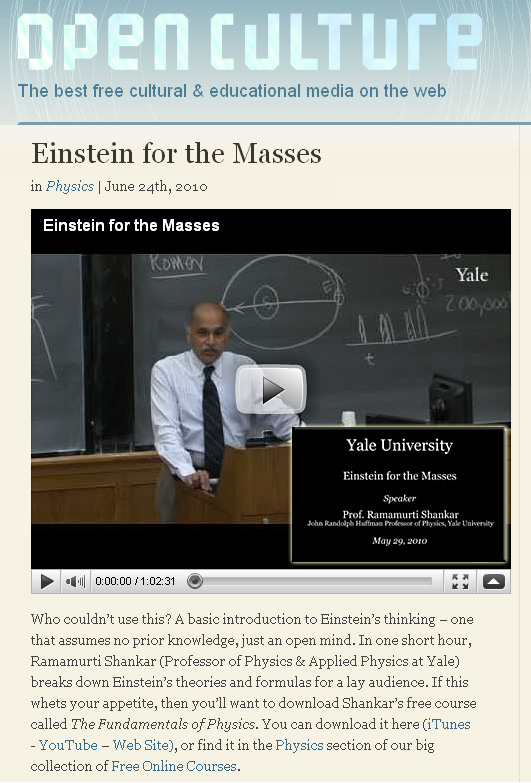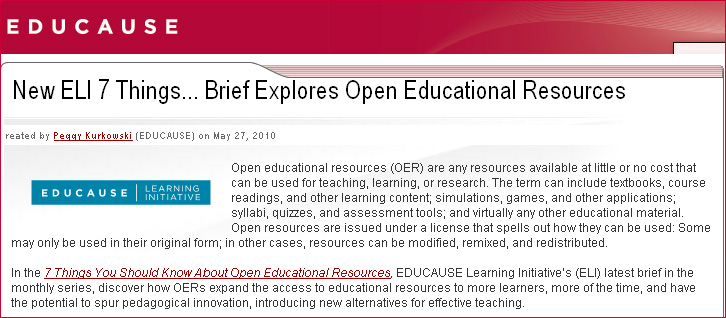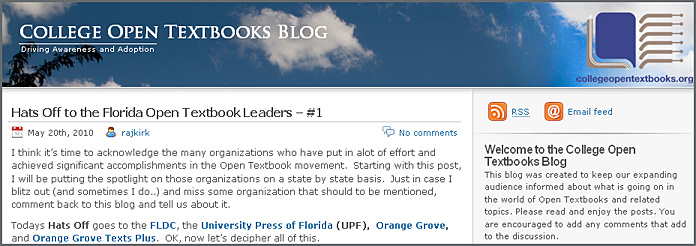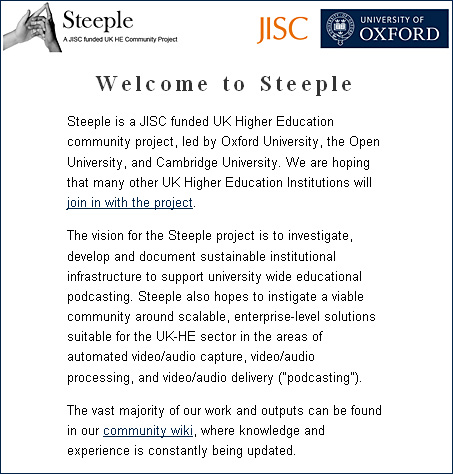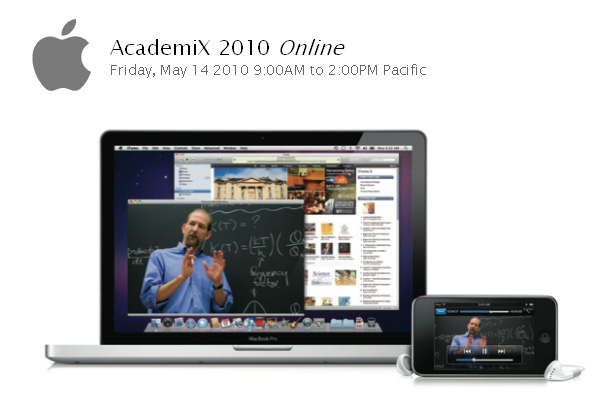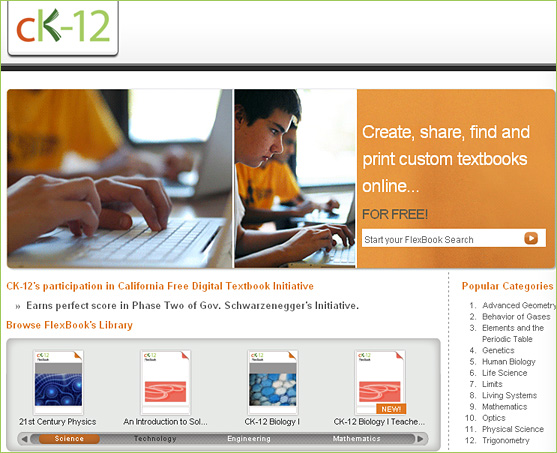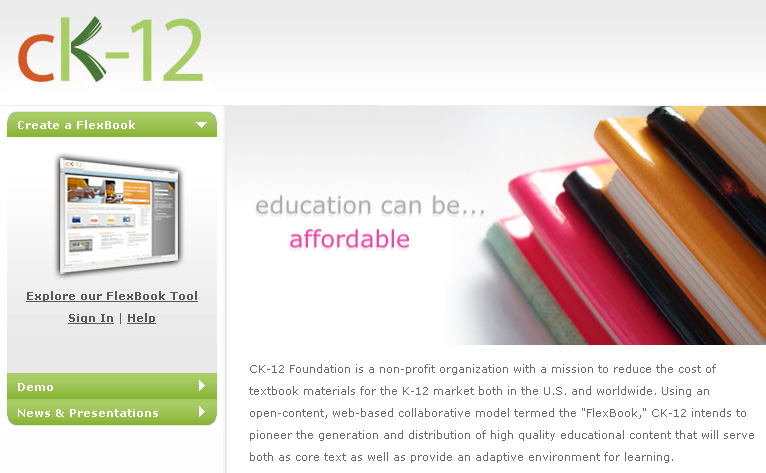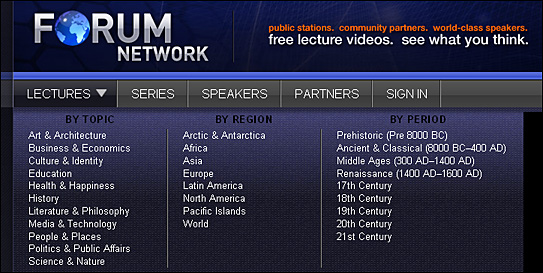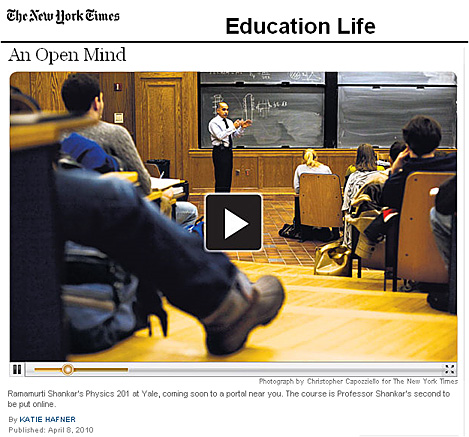Springer announces new open-access journals — from __ by Jennifer Howard
The Springer publishing company today announced that it is setting up a new open-access journal program. Called SpringerOpen, the program will initially include 12 new online-only, peer-reviewed journals in science, technical, and medical fields.
The Chronicle sat down with Eric Merkel-Sobotta, Springer’s executive vice president for corporate communications, and Bettina Goerner, the company’s manager of open access, to talk about the program. (They were in town for the annual meeting of the American Library Association.) They emphasized that all SpringerOpen journals will be published under a Creative Commons Attribution license, which allows reuse of articles as long as the authors are given credit. So if you’re an instructor who wants to use a SpringerOpen article in a course you’re teaching, “you can include it in course packages without e-mailing Springer’s rights department,” Mr. Merkel-Sobotta said.
The transformation of textbook publishing in the Digital Age — new business models — from Xplana by Rob Reynolds
Introduction
In April, we published a report on Digital Textbook Sales in U.S. Higher Education, in which we outlined sales for e-textbooks over the next five years based on current trends and variables. This series — The Transformation of Textbook Publishing in the Digital Age — provides an in-depth look at textbook publishing in Higher Education, and offers a roadmap for evolution and profitability in the industry. In this first installment, we will discuss New Business Models. In subsequent installments, we will explore New Product Models, New Authoring Models, and New Production Workflows.
My goal with this series is neither to extol nor criticize the textbook industry, but rather to provide an understanding of the business as it exists today, and to offer a digital success strategy for the companies that comprise that industry. By doing so, I hope to lay the groundwork for our subsequent summer series on The Transformation of Learning Systems, and The Transformation of Learning Content.
Strategies for New Business Models for a Digital Age
The majority of this post has been about existing practices and product/business models in the textbook publishing world. These practices and models are based on a print-centric paradigm that will be outdated within three years, and are also the result of old assumptions about Higher Education and learning in general.
While the path to digital transformation will be unique for the different publishing companies, there are some constants that will be part of any successful plan for Higher Education learning content in the coming years. The surface chatter will continue to be about e-textbooks — reaching 18%-20% of the new textbook market by 2014 — but the strategies that drive success will all take the following elements into consideration.
- The Disaggregation of Content — Future profitability will be incumbent on publishers’ ability to conceive of and produce meaningful content at a more granular level and disaggregated from the notions of textbooks. It is not that they should produce less or different content, necessarily, but rather that content must become agile, malleable, and designed to be mashed up easily by customers — institutions, instructors, and students. This means thinking at the key concept or learning objective level. It also means arriving at new revenue streams that are also disassociated from textbooks and ISBNs.
- A Focus on Lifelong Learning — New estimates have social media sites accounting for two-thirds of U.S. Web traffic withing five years. This growth and dominance is related to a sense of personal connectedness and long-term residence that users associate with such sites. Textbook publishers must find ways to move past outdated notions of students and instructors bound within narrow windows of consumer opportunity, and learn to embrace lifelong learning and see every adult citizen as a potential customer.
- Embracing Self-Publishing — In the new world order of business in publishing, self-publishing will be a primary avenue for partnership and revenue. And unlike the stigma associated with self-publishing in trade fiction, the educational content market already recognizes self-published content as valuable and embraces it. In the future, textbook publishers should plan on abandoning much of their current content authoring model in favor of aggressive self-publishing services. This will lead to broader partnerships throughout the educational community as well as to more sustainable models for revenue.
- Partner with Open Content — Make no mistake about it. Open content and open educational resources (OERs) will become leading alternatives to proprietary textbooks for at least 25% of the Higher Education market within five years. There are many services than can be offered around OERs and there is great value in mapping OERs to existing publisher content. Textbook publishers must take advantage of this opportunity to make their content and services more relevant, or they will see the value of their businesses diminish.
In next week’s installment, I will discuss specific new product models that textbook publishers will need to embrace in order to remain competitive in the coming years.
opencastproject.org
The Opencast community is a collaboration of individuals, higher education institutions and organizations working together to explore, develop, define and document best practices and technologies for management of audiovisual content in academia. Through the mailing list, website and collaboration among its members, the community will strive to offer guidance and information to help others choose the best approach for the delivery and usage of rich media online.
Matterhorn is an open source project working within the Opencast Community to develop an end-to-end, open source platform that supports the scheduling, capture, managing, encoding and delivery of educational audio and video content.
Learning in an open-access world.
Join colleagues from across the country in exploring how open access is transforming learning in higher education. Apple and MacLearning.org invite you to AcademiX 2010 for a look at open access, the new teaching methods that are evolving with it, and the Apple technologies that help make it all simple. Six 20-minute talks will expose you to successful approaches, and jump-start a provocative conversation between participants and presenters.
You’ll see how leading educators are finding it easy to produce, distribute, and access academic content using Apple products and open standards. You’ll also learn how students are using Apple tools outside of the traditional lecture environment for research, collaboration, and problem solving.
Fees
The AcademiX 2010 conference is offered free of charge.
One Event, Multiple Ways to Participate
The presentations will take place simultaneously at MIT and Northwestern University, with audiences at more than a dozen other campuses joining in a live video conference. An open microphone will be available at each campus so the presenters and audiences can hear your questions or ideas. If you’d like to attend one of the in-person events, you can register at this site.
If you can’t attend in person, please register on this page to watch the live webcast and interact online with the presenters and your peers.
An integral part of AcademiX 2010 is the Conference Connect online conference system. The ConferenceConnect system is available to all AcademiX 2010 participants, whether attending at an in-person event or via the web. ConferenceConnect will provide a detailed multi-day agenda, a participant directory, participant response surveys, session-based back channel chat rooms, online evaluations, local area information, open resource links and much more. The software’s “mobile learning space” is complementary to the AcademiX conference, and is used before, during, and after the conference.
Presentations
Confirmed topics and speakers for the AcademiX 2010 conference include:
This is How We Think: Learning in Public After the Paradigm Shift
Paul Hammond, Ph.D. Director of Digital Initiatives, Dept. of English, Rutgers University
Richard Miller, Ph.D. Executive Director, Plangere Writing Center, Rutgers University
“This is How We Think” continues the line of thinking begun in Miller and Hammond’s YouTube piece, “This is How We Dream.” In a world where information abounds, where reading and research have moved from the library to the laptop, and where the act of learning itself is now making its way out of the shadows into the public eye, how must the work of education change? In this collaborative presentation, Professors Miller and Hammond will discuss their efforts to invent new media teaching practices that encourage students to engage with the most pressing problems of our time.
Commons-Based Licensing and Scholarship: The Next Layer of the Network
John Wilbanks, VP for Science at Creative Commons
Knowledge products have been generated as text for hundreds of years, and scientific and scholarly results have been locked into text-based technology since the mid 1660’s. But journal articles are a compressed version of what happened in the research. The form and function of a journal article was settled long before we could effortlessly transmit data, or incrementally store and edit vast amounts of text, or store and forward research tools in repositories. There is no reason, other than technical lock-in by the printing press, why we should think of the article as a natural unit of knowledge transmission in science. Researchers and teachers make data, text, research tools, inventions, pictures, sounds, videos, and more. But almost none of them et measured other than the article. We now have the capacity to measure the quality of a scientist across multiple dimensions, not just the article. This talk will examine the increasing importance of disaggregated, multivariate knowledge in scholarly communications, and the impacts both good and bad of the coming shift away from the journal as the core form of knowledge transmission.
Innovation and Open Access in Scholarly Journal Publishing
Jason Baird Jackson, Ph.D. Professor of Folklore and Ethnomusicology, Dept Chair, Indiana University
Drawing upon wider lessons learned while editing a toll access journal published by a scholarly society and later establishing an open access journal published in partnership with a research university library, I will describe a range of motivations underpinning the movement for building an open access scholarly communication system. Beyond characterizing the many “whys” of the open access movement, I will offer a picture of where open access journal publishing (as distinct from open access repository use) is now and where it appears to be going. Themes include the opening up of legacy journal content, the circumstances of scholarly societies as publishers, the role of libraries as publishers, author’s rights questions, tenure and promotion issues, and the impact of open access publishing for students, communities of concern, and for the careers of individual scholars.
New channels for learning: podcasting opportunities for a distance university
Ben Hawkridge, iTunes U Project Officer, Open University, UK
The Open University is a UK based international distance institution with around 200,000 students, many actively learning in online channels. The University produces rich media courses, via a structured authoring process, in which student interactions (with media; with others; and with teachers) are ‘designed in’ from scratch. In this talk I will focus on one specific new channel opportunity – institutional podcasting, and in particular the experience of the Open University on iTunes U. Our ‘best practice sharing’ project STEEPLE shows how RSS provides a powerful technical key to managing these varied new channels. However, real success lies in creating value in these channels that matches up with the new needs of the web 2.0 student!
Education for a Mobile Generation
Kurt Squire, Assoc. Professor, Edu Comm & Tech, Curriculum & Instruction, University of Wisconsin-Madison, Assoc Dir. of Edu Research and Development, Wisconsin Institutes for Discovery
For years, educators struggled with how to wire classrooms for the Internet. With the arrival of mobile media devices, soon every student will come to school with a broadband enabled, multimedia device in their pocket. How do we design educational experiences in an era in which we must assume that students can — and will — access whatever information and social network they want at a moments notice? This presentation describes the forms of participation enabled by such devices, how youth are using mobile devices such as iPhones to accelerate learning, and what a cutting-edge curriculum that leverages such devices looks like. These new approaches not only offer, but require educators to break down the walls of the classroom.
The Digital Natives Are Getting Restless: the Student Voice of the Open Access Movement
Nick Shockey, Director, Right to Research Coalition, Director of Student Advocacy, Scholarly Publishing and Academic Resources Coalition (SPARC)
Students today are digital natives. We’ve grown up in a world of unfettered access to digital information, instant gratification in the best possible sense. Yet when we need access to scholarly journals, we’re suddenly locked out. Though our education literally depends on them, we’re often cut off from journals crucial to our research, our papers, and our understanding of both details and the larger picture. However, students, in addition to numerous other stakeholders, are quickly realizing that access barriers to journals are as unnecessary as they are harmful. We’re working to reform the current academic publishing system into one that is open and equitably serves the interests of all who depend on it, not just those who can afford the often high cost of access.
Who Should Attend?
AcademiX 2010 is offered to individuals engaged in the production, distribution, and use of scholarly communications who are either employed by, or attend, institutions of Higher Education. The intended audiences are faculty, administrators, instructional technologists, developers, librarians and students.
Congress rejected grant, but free online courses growing — USA Today –by Steve Kolowich, Inside Higher Ed
But a foundation-supported effort with similar goals is actually growing. The National Repository for Online Courses (NROC) was hoping for that government money to help expand its existing vault of free courses, says Gary Lopez, the repository’s director. Still, with online education becoming mainstream and many community colleges experiencing enrollment booms beyond their physical capacity, NROC’s membership is on the rise. At the same time, the repository’s reliance on membership fees calls into question how “free” its courses actually are.
Retired professor writes free online textbook — from eCampusNews.com
Some people play golf when they retire. William Reusch learned programming and created 2,000 online problem sets for organic chemistry. (p. 12)
Education Innovation: Top Five Education Industry Trends Predictions from the Gilfus Education Group Make Significant Progress in 2010
Education Industry leaders see tangible evidence of Education Innovation and Technology Trends predicted from October 2009.
In October 2009 the Gilfus Education Group predicted the:
- Emergence of robust “Enterprise” Open Source Learning Management Systems
- Combination of academic and administrative functionality into a more cohesive experience
- Proliferation of “Software-as-a-Service” administrative and academic applications
- Growth of independent content object repositories to support teaching and learning
- Introduction of successful learning applications from other countries into North America
Moving college into the 21st century — politico.com (see quotes below)
Today, we’ve reached another turning point. The global economy is changing, and the United States needs to educate its way to a better economy for the 21st century. President Barack Obama has set a goal that by 2020, America will once again have the highest proportion of college graduates in the world. To reach that goal, we need to bring 5 million more Americans into higher education and ensure that future generations will have the same opportunity for a college education and success in the work force.
The president has proposed a comprehensive agenda to keep a college education within reach, especially for America’s poorest families, and to dramatically increase college graduation rates in the next decade. President Obama’s agenda includes the largest increase in federal financial aid since the GI Bill — a 30 percent increase in fiscal 2010 alone. In addition, the president’s American Graduation Initiative would provide $12 billion more during the next 10 years to improve community colleges and help students gain access to higher education and ensure that they earn their degrees.
Beyond these investments in our future, one part of the AGI has the potential to have a lasting impact on the future of higher education: The president is proposing to invest $500 million over the next 10 years to create world-class online college and high school courses that will be available to all 24/7/365. Colleges, universities, publishers, other institutions and related consortia will be invited to compete to create state-of-the-art online courses that combine high-quality subject matter expertise with the latest advances in cognitive and computer sciences. Such courses will enable students to move through the material at their own pace. When students do not understand a particular lesson or concept, carefully designed assessments will identify the gap in their learning. They’ll relearn the material and have another chance to demonstrate mastery (emphasis DSC).
From DSC:
- Along these same lines, see: The Forthcoming Walmart of Education.
- If done well, these courses are going to be highly-engaging, while using state-of-the-art technologies and instructional methods. Can one faculty member compete with this team-based approach? No way! (And I mean no disrespect at all here — it’s just too much for one person to keep up with, be interested in, and have the time and resources to do all of this.)









